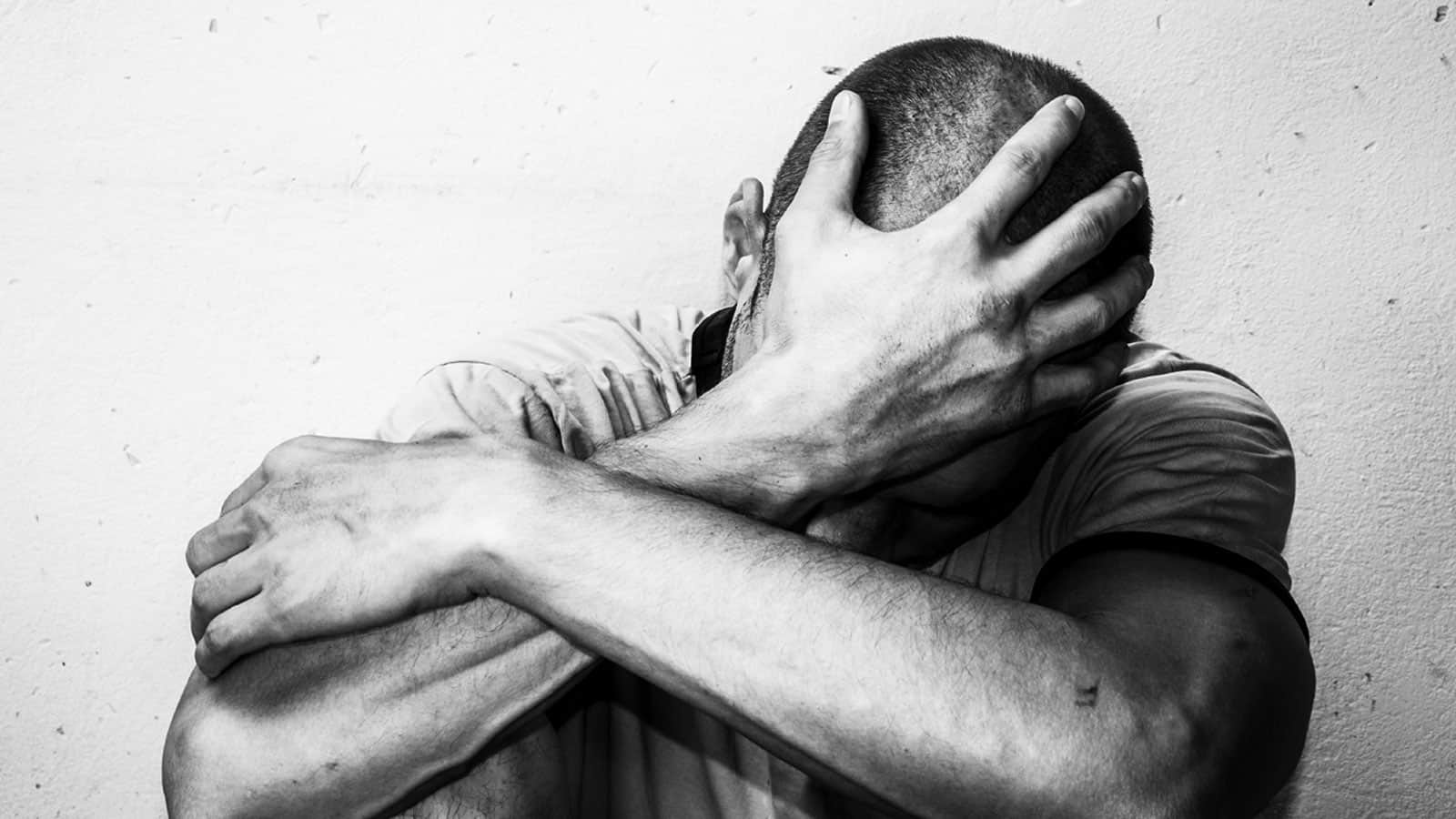Anxiety is part of life. It is virtually impossible to avoid all situations which can create it. We can experience it in our own home, driving to work in traffic, sitting in our boss’s office, or even going to the vet office. For the majority of people, this anxiety is related to rational fears based on a situational occasion.
For 7% of people, however, that anxiety can come about meeting a friend at a coffee shop, going to the mall, or going to work, with no apparent trigger other than their fear and anxiety. This fear is called social anxiety disorder. Ironically though, those who have struggled with social anxiety have better learned coping strategies for anxiety-producing situations than an individual who does not have social anxiety. Researchers explain how social anxiety can change how people handle their emotions.
What is social anxiety disorder?
For those who have never experienced a social anxiety disorder, it seems ridiculous to think that a person may spend an hour or two mentally preparing for the day. That someone may run previous conversations repeatedly in their mind because they believe they sounded stupid. That someone may turn down invitations because their heart starts to pound at the thought of it. That they have thoughts like “how many people will be there, how many of them do I know, what should I talk about, do I have anything in common with them, I’m just going to stand out, look wrong and say the wrong things and then people will talk about me.”
Social anxiety disorder is a mental illness characterized by the fear of interacting with people due to a belief of being negatively judged and evaluated by other people. This is a chronic condition whose impact on a person’s functionality can range from high to low. A person who has learned to handle the symptoms and can function well in their life is considered “high functioning.” An individual who can barely walk down the street is unable to make eye contact, or can’t carry a job where they must interact with people is considered “ low functioning.”
Triggers and Symptoms of Social Anxiety
There is a multitude of symptoms for those with social anxiety. They can be behavioral and physical, can differ in extremes, and have various triggers.
Triggers for social anxiety:
- Meeting new people or people in authority
- Criticism or teasing
- Focus of attention
- Social engagements, especially if there are many strangers
- Friendships or romantic relationships
- Forced to speak in a roundtable group
- Having their actions watched
Physical symptoms:
This list is a few of the physical symptoms.
- Turning red in the face
- Heart beating fast
- Sweating
- Twitches in the face and hands
- Trembling
- Mouth and throat become dry
- Inability to speak clearly, mumbles
- The voice becomes very low
- Swallows a lot or has difficulty swallowing
- Becomes nauseous
- Becomes lightheaded
Behavioral Symptoms
- Has nervous habits: Picks at items to occupy hands, the body sways back and forth or chews their nails
- Avoids eye contact
- Feels awkward when talking with others
- Thinks too much, overanalyzes
- Mind races, obsessive thinking
- Dwells on negative thoughts anticipates adverse outcomes without reason
- Doublechecks detail and requires the reassurance of correct information
- Sleep difficulties
- Overcompensates by being overly loyal, diligent, a “people pleaser.”
- Takes on too many tasks to occupy their time
- Limited social life. Always has a “reason” not to attend the office parties, not to go to large gatherings, not to go to busy restaurants, etc.
- Constantly compares themselves to others
- Others may find them difficult to “read” due to appearing a bit standoffish, reserved,
- Tires very easily and quickly due to emotional stress
The positives of high functioning anxiety:
Given all of these symptoms, you might think it is easy to identify a person with social anxiety. A highly functioning person with social anxiety has learned to compensate or work around their symptoms to function and succeed in society. They have developed some skills that generally are viewed as positive, and others appreciate it. For example”
- Attempts to be organized, well informed and punctual
- More likely to be proactive. Not only does it look good to others but allows for a bit of control
- Pays attention to details and is diligent and thorough in their work
- Always tries to help others
- Demeanor is calm and collected
- Appears happy, likes to joke, laugh, and make others feel good too.
- Keeps things organized, clean and orderly
- More passionate about the things they do. They go the “extra mile” to do a good job.
Essentially, a person with high functioning social anxiety may very well be your office manager, manager, head nurse, or anyone who is in a position of others relying upon them to keep the workplace running smooth. Underneath their composure, warm heart and diligence are an individual battling their fears and insecurities every day.
Methods of dealing with anxiety:
All of us have experienced anxiety. It is a physiological reaction to a situation in which our brain is not comfortable, and therefore it prepares for “fight or flight.” This increases your heart rate, breathing, which may cause some rise in body temperature and sweating, racing thoughts, and more. For most people, we recognize it for what it is. Once we have handled the situation, our body and mind calm down without thinking negatively about ourselves.
For a person who has a social anxiety disorder, they tear apart everything they did wrong, imagine how poorly everyone must think of them and what a horrible person they are. They fear everyone finding out their secret, or believe that they are a fraud. What if everyone knew how horrible they are? No one would like them. Imagine feeling that way every day.
Typical treatment for social anxiety consists of antidepressants, anti-anxiety medications, psychotherapy, and cognitive behavioral therapy. The medications don’t work so well to alleviate anxiety. Most antidepressants increase anxiety symptoms. Furthermore, anxiety medication usually has the side effect of really making you tired. Thus, you can’t function well during your day.
Cognitive therapy
This therapy offers the best results. Cognitive therapy is designed to re-train your brain on how to interpret situations and your beliefs and reactions to them. For example, most people have bad, negative memories of giving their first speech. From that day on, they may have labeled themselves as ” unable to speak in public.”
For the majority of people, this is a falsehood. With the proper supportive environment, practice, and training, most people can learn to speak in public. Once you have successfully given a few speeches, you will no longer believe that false idea. Now your brain knows that you can, in fact, give a speech, and the anxiety will be far less.
For an individual with social anxiety, a therapist may first need to go back and help the client isolate when they began having these thoughts, what happened, what was the outcome, and how did they feel. Then, the therapist will teach the client how to start deconstructing those established negative beliefs in social situations through various methods.
These methods consist of teaching them to:
1 – Understand that everyone experiences anxiety.
It is a normal part of life. Don’t hide from it. Face it.
2 – Keep things in perspective.
Recognize when you are using “extreme negative words or phrases” like always, never, hate, can’t, etc. Nothing in life operates across the board the same at all times. Therefore you don’t “always” fail. Along with that, put negative thoughts in perspective; “Really, is everyone looking at you? What about that guy over there? His back is to you and has been for an hour. He hasn’t even seen you”.
3 – Relinquish control.
Accept that you can’t control everything and sometimes the unexpected can be fun. You don’t know what all you are capable of unless you do uncomfortable things.
4 – Redirect your focus
Focus on something other than your thoughts. Count carpet strands, dishes on the table, sets of silverware. Get yourself out of your head.
5 – Take deep breaths.
Breathe in through your nose for the count of 4 and exhale slowly for the count of 5 through your mouth. This exercise will calm your heart rate.
6 – Don’t drink a lot of caffeine.
Caffeine is a mild stimulant that will only make the physical symptoms of anxiety stronger.
7 – Reword negative talk.
Anxious becomes excited. Scared become anticipated. Positive self-talk can help you turn the feelings around.
Why these techniques work:
These same methods work for anyone who is experiencing anxiety, with some variance depending upon the cause. A study was performed at the University of Virginia. Various students who reportedly had multiple levels of social anxiety were given an app that tracked how they interacted during their school time for two weeks.
They were compared with those who did not have social anxiety but were still under anxiety-provoking activities. What was discovered was that those with low functioning social anxiety and those without any social anxiety tended to use avoidance as a method of coping. For those individuals, they demonstrated more interpersonal issues.
The individuals with high functioning social anxiety utilized at least one of 8 identified coping methods. They tended to show more of an interest in social interactions or at least a higher ability to cope.
Final Thoughts on Facing Social Anxiety:
An individual who has social anxiety battles their thoughts, emotions, and fears daily. Researchers have explained how social anxiety can change how people handle their emotions. A high functioning individual has just found various tools to use to their advantage to cope so they can succeed in life. Those tools may make them come across as a cool, calm, “together” kind of person that everyone can rely on to help, take charge, and have everything in order. A direct contrast to how they feel inside. It takes a tremendous toll on their mental, emotional, and physical energy to fight these demons. However, every day is teaching them. Every day is teaching them that they are a survivor.


















